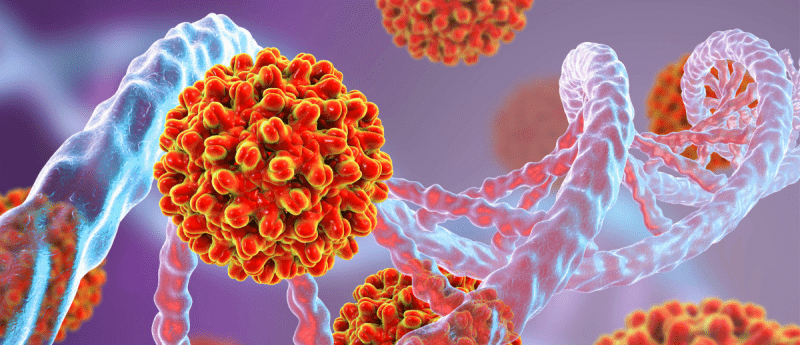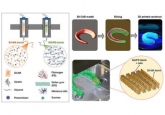Top 5 grants in regenerative medicine: March 2022

This month’s top grants in regenerative medicine, sourced from Dimensions, includes projects on: nutrient regulation of intestinal stem cells; enhancing the engraftment of microglia for the treatment of neurological disease; engineering regeneration in the central nervous system and pathogenic monocyte response to chronic lung inflammation in cystic fibrosis.
Check out this month’s top grants in regenerative medicine:
- Nutrient regulation of intestinal stem cells
- Enhancing the engraftment of microglia for the treatment of neurological disease
- Engineering regeneration in the central nervous system
- Regulation of adult hippocampal function by the neural stem and progenitor cell secretome
- Pathogenic monocyte response to chronic lung inflammation in cystic fibrosis
Nutrient regulation of intestinal stem cells
The aim of this study is to observe the mechanisms responsible for nutrient regulation of tissue stem cells and their effects on aging and the maintenance of stem cell function, a direct step to understanding the regulatory basis of animal lifespan. The project will focus on the intestine, which undergoes high cellular turnover and is adaptable in response to changing nutrition, making it an optimal model for nutrient regulation of tissue stem cells. More specifically, the project will address the regulatory role and physiological relevance of Periodic tryptophan protein 1 in somatic stem cells and aging. The results obtained in the study will go beyond the current knowledge of nutrient-dependent regulation of intestinal stem cells.
Funding amount: US$234,000
Funding period: 1 March 2022 – 29 February 2024
Funder: European Commission
Research organization: University of Helsinki (Finland)
Enhancing the engraftment of microglia for the treatment of neurological disease
Currently, there are no effective treatments for microgliopathies, a class of neurodegenerative disorders that are caused by the absence or misfunction of specialized cells in the brain called microglia. Patients with microgliopathy may be treated by replacing diseased microglia with new cells.
This project aims to demonstrate the feasibility of a novel approach that combines the depletion of endogenous microglia using a commercially available drug with the transplantation of induced pluripotent stem cells to generate new microglia cells. These aims are a necessary first step in developing new commercial therapeutics for the treatment of microgliopathies and potentially other neurodegenerative diseases.
Funding amount: US$400,000
Funding period: 1 January 2022 – 31 December 2022
Funder: National Institute of Neurological Disorders and Stroke
Research organization: Novoglia Inc. (CA, USA)
Engineering regeneration in the central nervous system
When embryonic progenitors unfold to generate neuron diversity, some adult stem cells lose the expression of neurogenic factors and cease to generate neurons. As a result, neurons lost to injury or disease are not replaced, leading to long-term functional impairment. This study aims to utilize single cell genomics to identify the molecular programs that drive neuron subtype specific neurogenesis in the embryonic spinal cord and identify candidates for reactivation through comparative genomic analysis with adult neural stem cells. Factors that elicit neurogenesis in vivo among the candidates will be identified and tested in mouse models of spinal cord injury and amyotrophic lateral sclerosis.
The aim of this project is to identify new regenerative medicine strategies using molecular engineering in the regeneration-recalcitrant mammalian central nervous system.
Funding amount: US$730,0000
Funding period: 1 January 2022 – 31 December 2025
Funder: Swedish Research Council
Research organization: Karolinska Institute (Stockholm, Sweden)
Regulation of adult hippocampal function by the neural stem and progenitor cell secretome
Understanding the functional role of neural-lineage cells in the adult hippocampus will provide insight into the mechanisms that mediate hippocampal cognitive-emotional functions, as well as the potential mechanisms for tissue regeneration in the adult brain. The aim of this study is to understand role of endogenous neural stem cells and their progenitors (NSPCs) in the adult hippocampus. Adult hippocampal NSPCs may regulate their microenvironment through the production of vascular endothelial growth factor, which is necessary for sustaining healthy hippocampal function. This project will investigate the hypothesis that NSPCs support hippocampal function by direct actions of vascular endothelial growth factor that suppress neuronal hyperexcitability, ultimately supporting memory function and protection from injury.
Funding amount: US$390,000
Funding period: 23 December 2021 – 30 November 2026
Funder: National Institute of Neurological Disorders and Stroke
Research organization: The Ohio State University (OH, USA)
Pathogenic monocyte response to chronic lung inflammation in cystic fibrosis
The overall goal of this study is to understand the cellular mechanisms that lead to progressive and irreversible cystic fibrosis (CF) lung deterioration. The contribution of inflammatory monocytes and monocyte derived macrophages to the development of irreversible lung tissue remodeling in CF will be studied. The central hypothesis is that chronic lung exposure to lipopolysaccharide in CF increases the recruitment of inflammatory monocytes to the lungs and that these monocytes are programed to cause tissue damage without effectively fighting infection. The project will further explore chronic lung exposure to lipopolysaccharide and methods to mitigate tissue remodeling in CF lungs without compromising host defense against bacteria.
Funding amount: US$787,000
Funding period: 1 January 2022 – 30 November 2025
Funder: National Heart Lung and Blood Institute
Research organization: Yale University (WA, USA)
Brought to you with support from:






